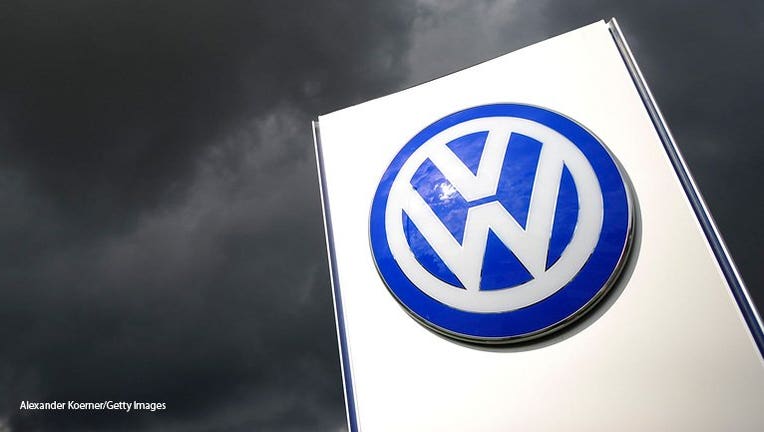Volkswagen triples electric car sales ahead of climate rules

WOLFSBURG, GERMANY - SEPTEMBER 23: Rain clouds are seen over a Volkswagen symbol at the main entrance gate at Volkswagen production plant on September 23, 2015 in Wolfsburg, Germany. Volkswagen CEO Martin Winterkorn and other members of the superviso
FRANKFURT, Germany - Europe's push into electric cars is gathering speed — despite the pandemic.
Automaker Volkswagen tripled sales of battery-only cars in 2020 as its new electric compact ID.3 came on the market ahead of tough new European Union limits on auto emissions. And Germany, long a laggard in adopting electric vehicles, saw more people buy electrics in December than opted for previously dominant diesel vehicles.
Those are early signs of what will likely be an upcoming year of increasing market share for electric cars as EU regulations drive their adoption, despite the recession caused by the coronavirus pandemic that has caused the overall car market to shrink.
Volkswagen said Tuesday its namesake brand sold 134,000 battery-powered cars last year, up from 45,000 in 2019.
Including hybrids, which combine an internal combustion engine and an electric motor, sales of electrified cars reached 212,000, up from 82,000 in 2019.
Volkswagen's announcement comes as the auto industry association in Germany reports that one in four cars sold in the country in December had an electric motor, uptake that was supported by incentives as part of the government stimulus package during the COVID-19 recession.
Battery and hybrid cars took 26.6% of sales that month, running ahead of diesel cars, which had 26.2%. That is also a token of diesel's steep decline after Volkswagen's 2015 scandal involving diesel cars rigged to cheat on emissions tests.
Electric cars have so far been a small but rapidly growing slice of the European market.
Automakers in the EU must sell more zero-emission cars in order to meet tougher fleet average limits on emissions of carbon dioxide, the primary greenhouse gas blamed for climate change. Those limits came fully into effect on Jan. 1. Failure to achieve a fleet average of less than 95 grams of carbon dioxide per kilometer driven can mean heavy fines.
Sales have been driven by government incentives, and by an increasing number of new models that — like the ID.3 — were designed purely as electric cars, rather than being converted from internal combustion models.
FREE DOWNLOAD: Get breaking news alerts in the FOX6 News app for iOS or Android
Demand has been held back by lack of places to charge electric cars, including for people who live in apartment buildings and can't install a charging box at home. Germany's auto association, the VDA, said there's only one publicly available charging station for every 17 electric cars.
California-based Tesla has been a major factor in the electric upswing with its Model 3 and its proprietary network of fast-charging stations.

Wisconsin State Capitol boarded up, National Guard mobilized
Windows at the Wisconsin State Capitol were boarded up Monday with state officials bracing for any potential unrest.
Featured
Report: Wisconsin’s tax burden drops below national average
Wisconsin's state and local tax burden dropped below the national average and taxes as a share of income in 2020 reached its lowest level in at least half a century.
Featured
New strain of the coronavirus 1st detected in UK now spreading in US
A new strain of the coronavirus that was first detected in the UK is now spreading in the United States.



